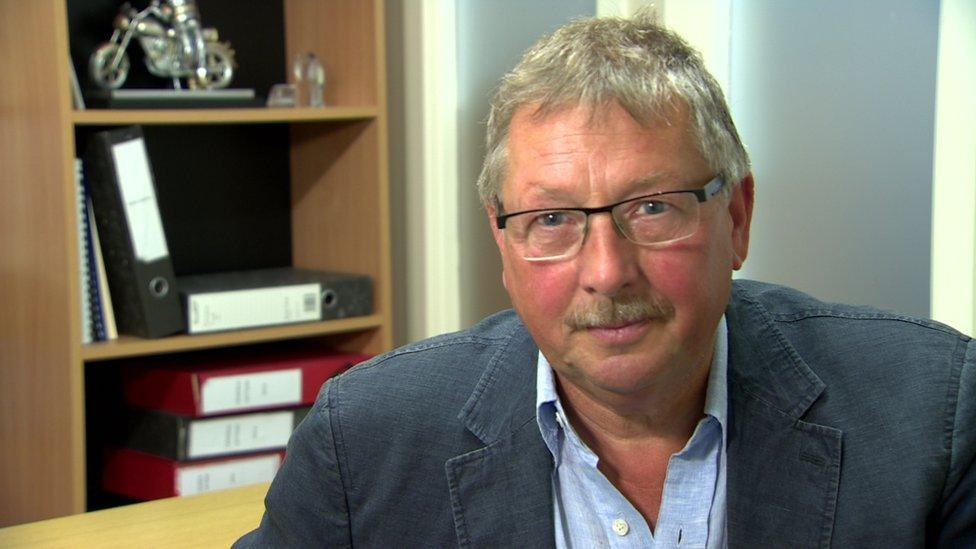Has Brexit fractured Irish-unionist relations?
- Published
- comments
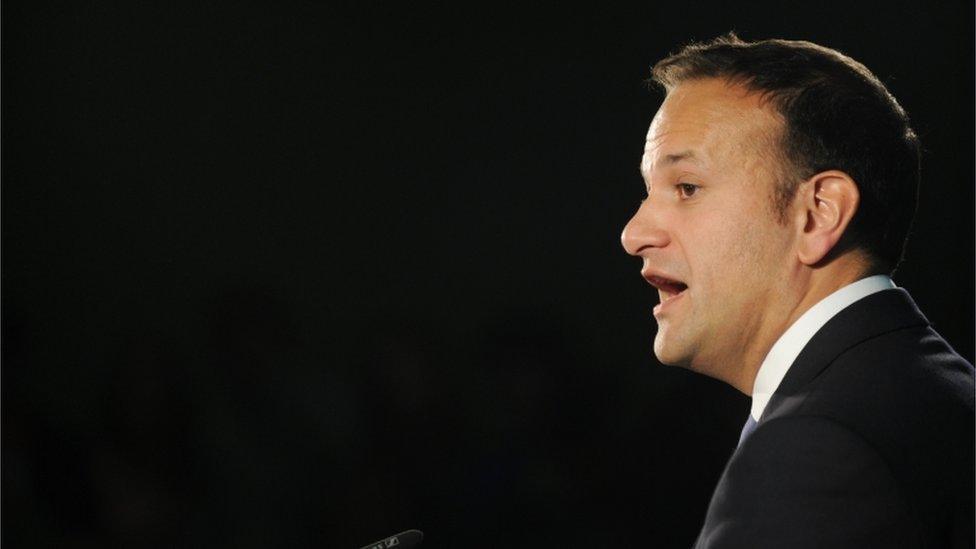
Unionists have been critical of Leo Varardkar's approach to Brexit
Last week marked 21 years since the Good Friday peace agreement was signed - the deal that effectively helped bring decades of violence in Northern Ireland to an end.
It was co-forged by the British and Irish governments and led to the establishment of joint Irish-British bodies to help continue building progress.
But the Irish government has previously said Brexit threatens to undo much of that.
Another unintended consequence of Brexit seems to have been the impact on relations between unionists and the Irish government.
Last week, the Democratic Unionist Party (DUP) MP Emma Little-Pengelly said it was sad that the behaviour of the Irish government in relation to the Brexit negotiations "has so fundamentally fractured the carefully built relationships with unionists".
Allow X content?
This article contains content provided by X. We ask for your permission before anything is loaded, as they may be using cookies and other technologies. You may want to read X’s cookie policy, external and privacy policy, external before accepting. To view this content choose ‘accept and continue’.
Allow X content?
This article contains content provided by X. We ask for your permission before anything is loaded, as they may be using cookies and other technologies. You may want to read X’s cookie policy, external and privacy policy, external before accepting. To view this content choose ‘accept and continue’.
The Irish government is at odds with unionist opinion in Northern Ireland on the backstop contained within the Brexit deal, because of unionist concern that the trade differences it would cause between Northern Ireland and Great Britain could threaten the break-up of the union.
All unionist parties in Northern Ireland are opposed to the backstop, but the Irish government insists it must endure in the agreement until another workable solution can be found.
Mrs Little-Pengelly accused the Irish government of "completely and aggressively" dismissing unionist concerns in relation to the withdrawal agreement and suggested it had damaged relations in a way that would be difficult to rebuild.
However, that is a claim the Irish government has always rejected.
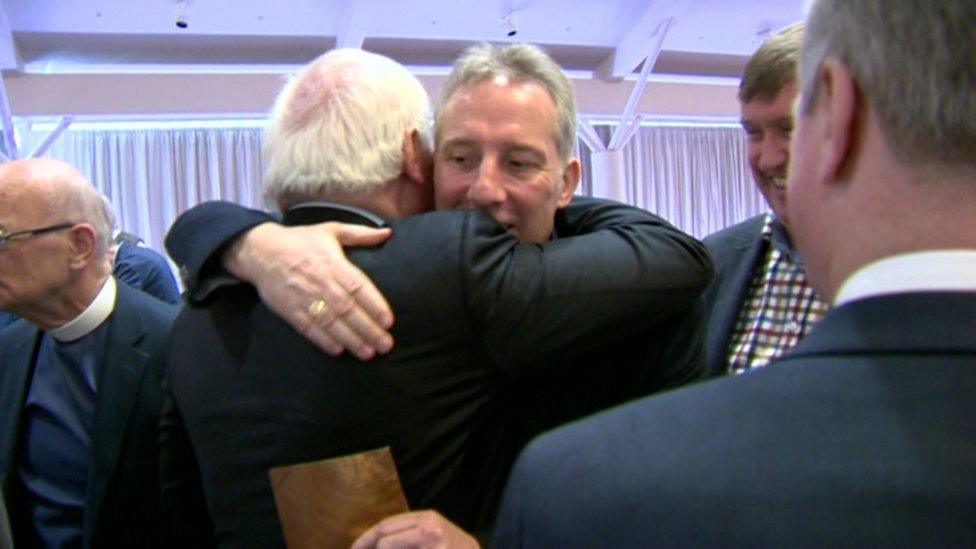
In a sign that there is still some warmth, Bertie Ahern and Ian Paisley hugged each other at a memorial event for Mr Paisley's father
Just as recently as last week, Taoiseach (Irish Prime Minister) Leo Varadkar said he believed his government had a "good relationship" with the DUP and that they communicated at all levels.
But has Brexit irreparably damaged relations built up over the past two decades?
Former DUP adviser Tim Cairns said he did not think they were broken beyond repair, but he puts the blame for much of the friction at the feet of the Irish government.
He said he believed that if Leo Varadkar and his current Tánaiste (Deputy PM) Simon Coveney, had been in charge in 1998, then there would not have been a peace agreement at all.
"They don't possess relational qualities - there seems to be no capacity for relationship building," he added.
'Need to reach across'
He accused them of not understanding "the relational nature of politics" in Northern Ireland and the Republic of Ireland and said Mr Varadkar could learn lessons from one of his predecessors, Bertie Ahern.
Mr Ahern was taoiseach during the talks that led to the Good Friday Agreement and worked on subsequent Stormont deals including the 2006 St Andrews Agreement before leaving office in 2008.
A matter of weeks ago, Mr Ahern attended an event in memory of the late DUP leader, Ian Paisley Senior.
Mr Cairns said Mr Ahern had understood that in order to cut a deal, there is a "need to reach across" - but that because the UK government had agreed to the backstop, he believed that the Irish government did not feel a need to reach out.
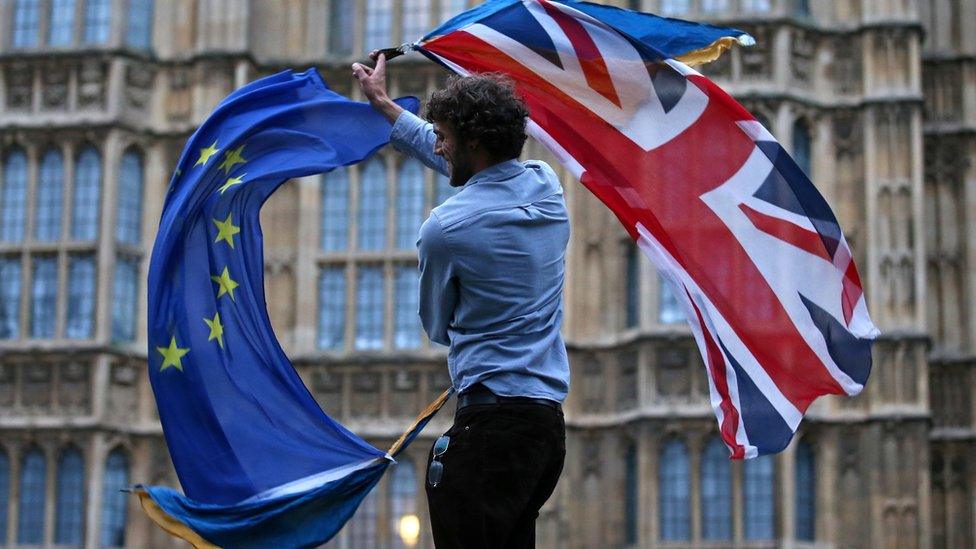
Brexit has caused division among politicians in Westminster, Belfast and Dublin
Brexit has certainly created a more frosty political atmosphere and with it, harsher exchanges of language.
It is not just the DUP that has accused the Irish government of ramping up tensions.
The Ulster Unionist Party's leader Robin Swann attended the Fine Gael conference in October, and said some comments the Irish government had made about Brexit "were like a poke in the eye to unionists".
He said when his party raised legitimate concerns over the backstop, that seemed to be met with a "suck-it-up attitude".
That being said, a former taoiseach told BBC News NI that while he believes personal relations with unionists remain positive, Brexit has had "inevitable consequences" on political relationships.
John Bruton, who was Irish prime minister from 1994 until 1997, said Brexit had fractured relationships - but it was not through anything the Irish government had done.
"I regret to say the DUP by supporting Brexit has contributed directly, and foreseeably, to the situation we have today," he said.
He also rejected the suggestion that the Irish government acted aggressively in the negotiations.
'Substance not adjectives'
"We didn't want Brexit. What the Irish government has done consistently is to explain the consequences of Brexit on the Good Friday Agreement."
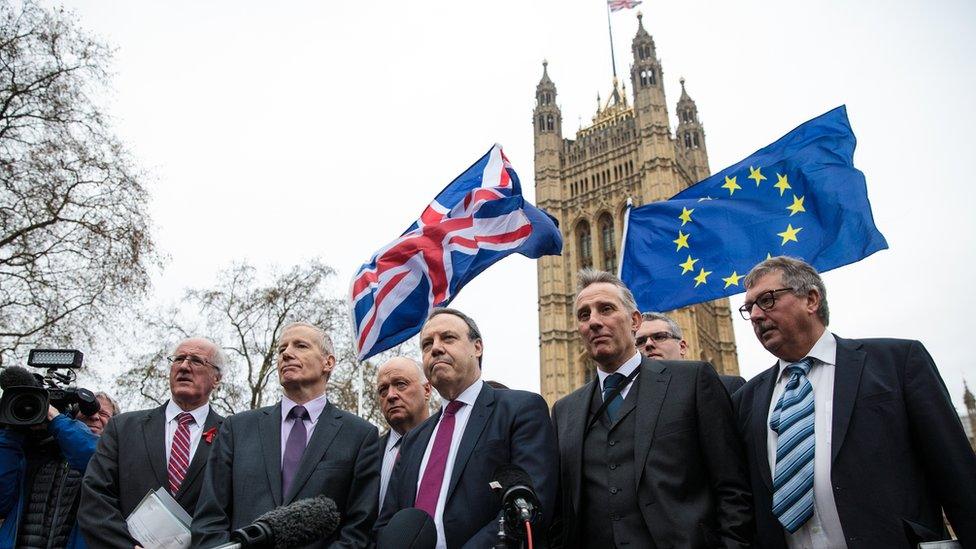
The DUP has insisted it wants the UK to leave the EU with a deal, but has criticised the Irish government's handling of negotiations
"It's not about adjectives, it's about substance," he added, explaining that name-calling and describing relations as "toxic" was not helpful to anyone.
It is perhaps worth noting that it was not always like this.
Back in 2012, Simon Coveney became the first Irish government minister to attend a DUP conference.
At the time, Mr Coveney said his appearance at the conference in the La Mon hotel was further proof of the "increasing trust" among politicians in Northern Ireland and the Republic of Ireland.
Last month, the DUP's chief whip Sir Jeffrey Donaldson was on a panel at the Fine Gael conference - but on Wednesday, Mr Coveney told the Dáil (Irish Parliament) he had not had any "detailed discussions" with DUP politicians since then.
It seems the seismic events at Westminster that have impacted political relationships, mean there is now much more work for both sides to do, if they want to restore and keep building trust.
- Published13 March 2019
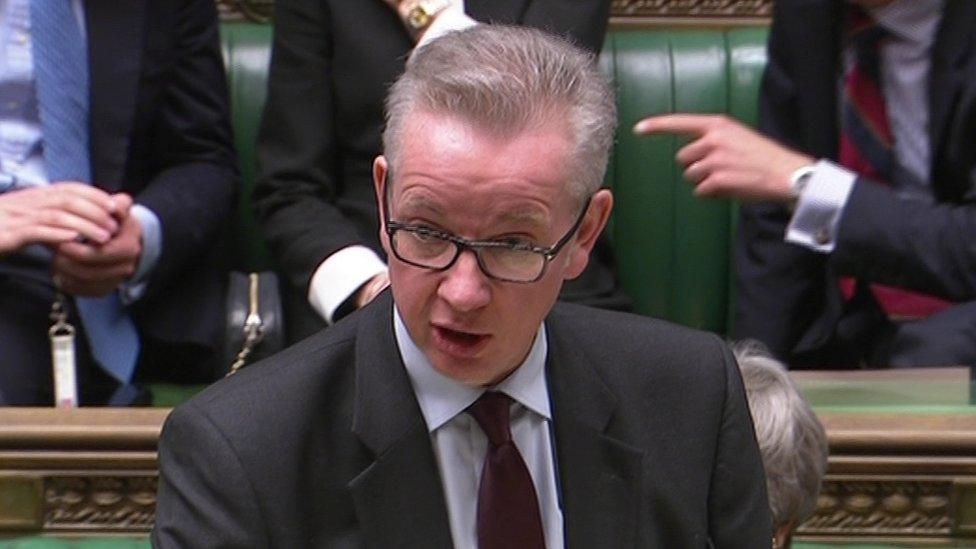
- Published3 November 2018
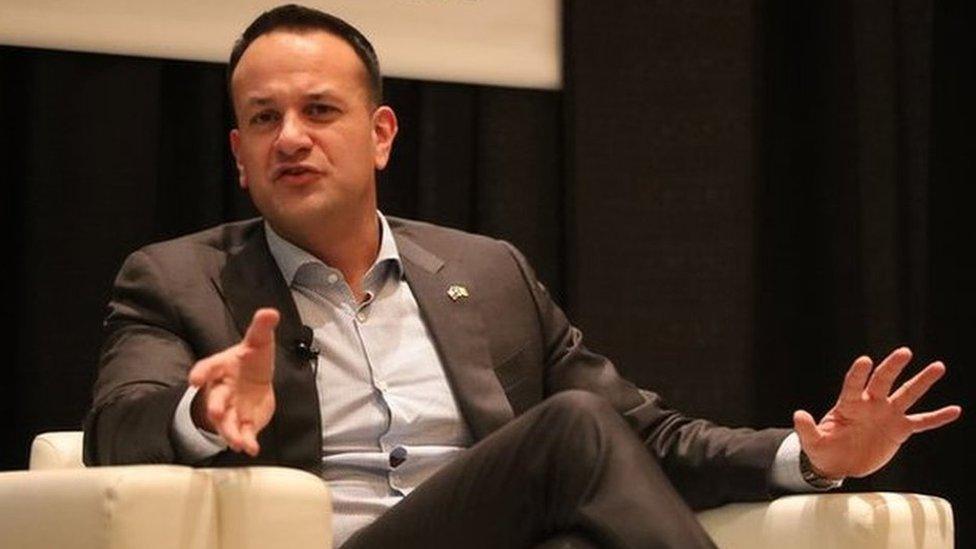
- Published1 May 2018

- Published18 January 2018
